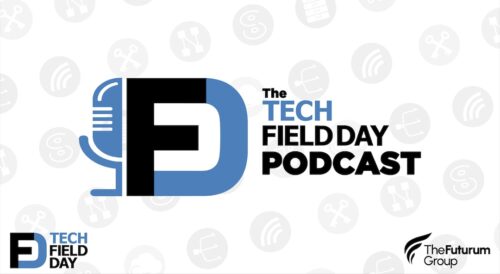Max Mortillaro got to hear from Intel’s Optane team at Storage Field Day earlier this year. In this post, he considers some of the trials and tribulations of the storage class memory. For Max, the challenge of a mainstream use case remains. Optane can deliver on performance, but when considering cost per gigabyte, the proposition becomes more mixed. He sees it carving out a use case as a durable caching layer for Tier 0 storage.
3D XPoint Is At A Crossroads – Can Intel and Micron Deliver?
With the announcement that Intel and Micron are dissolving their partnership, Stephen Foskett says that their joint 3D XPoint technology is at a crossroads. So far 3D XPoint has been over-promised and underperforming, but Stephen says the product shows some promise in the enterprise, citing NetApp’s Storage Field Day 16 presentation and discussions at Dell Technologies World.
Back to the Storage Future with Intel’s SPDK
Rich Stroffolino gives an over of Intel’s SPDK, which includes a storage driver that bypasses the kernel for lower latency and better scaling with NVMe storage. Intel’s software approach to performance optimization perhaps signals a performance plateau based on hardware advances alone.
Visiting Intel with SFD 12
Howard Marks was at Storage Field Day and got to see the latest and greatest from Intel. As the current de facto CPU and chipset vendor in the data center, Howard sees them as having an immense responsibility in terms of dictating computer architecture. Luckily from what Howard saw at Intel’s presentation, they are living up to this. As an example, he goes into the applications and implication of their Storage Performance Developer Kit, as well as their recent release of the first commercial 3D XPoint.
Storage Field Day 12 – Day 3 Recap | The Partly Cloudy Blog
Adam Bergh went to first Storage Field Day this month. He wrote up a post outlining the presentations he saw at the last day of the event. SNIA and Intel gave Adam a lot of food for thought. SNIA gave an overview of its role in the industry, as well as reviewing the development of hyperscaler storage. Intel reviewed developments with its Storage Performance Development Kit and Resource Director Technology.
Intel Optane Enters the Market
Rich Stroffolino gives his thoughts on Intel’s release of their first commercial 3D XPoint product, the Optane P4800X. He situates where its initial $1500+ price tag puts it within the world of new storage technology, what the new tech should be good for in the data center, and similarities to existing storage-as-memory products.
Intel SPDK and NVMe-oF will accelerate NVMe adoption rates
Intel’s presentation from Storage Field Day this month certainly made an impression on the delegates. Jon Klaus wrote up his thoughts. He goes into particular details over SPDK and NVMe over Fabrics, both of which he thinks will have genuine business impacts for overall NVMe adoption. For Jon, this is an example of Intel pushing software to truly catch up to recent advances in hardware.
Intel Are Putting Technology To Good Use
Intel’s Storage Performance Development Kit made quite an impression on the Storage Field Day delegates. Dan Frith is no exception. He’s written up his thoughts on how it impact the emerging NVMe storage space. SPDK is able to offer much lower latency and better scaling IOPS than the standard Linux kernel, mainly by replacing its kernel-based interrupt-driven driver. This centers storage CPU needs on dedicated cores, and frees up overall system resources. In use cases, early customers have seen a roughly 300% improvement in latency and IOPS. The presentation left Dan “mighty excited”!
Intel Storage Futures From #SFD12
Chan Ekanayake shares his thoughts from Intel’s presentation at Storage Field Day earlier in March. He focuses in on Intel’s Storage Performance Development Kit, and how SPDK will impact enterprise storage. It’s an open sources replacement for a lot of the storage functions of the Linux kernel, which allows for much lower latency, and nearly linear scaling of NVMe drive performance.
In Search of the Perfect Data Management Machine
Glenn Dekhayser has a write up from his first Storage Field Day event. He got to hear from Intel, specifically about their Storage Performance Development Kit. Intel developed this to give hyperscale deployments more consistent performance for storage latency, which in SSDs often experiences frustrating tail latency. SPDK works by isolating an entire CPU core solely to storage IO. This allows for much lower latency, and gives you almost linear scalability with NVMe drives. Glenn is impressed with the impacts this could have at scale.
Hardware has set the pace for latency, time for software to catch up
Jon Klaus thinks software needs to catch up to SSDs for reducing application latency. Initially, SSDs were limited by storage processors and buses build with spinning disks in mind. This has largely been remedied, so where’s the next big performance bottleneck? Latency.
Jon looks at how Intel’s Storage Performance Development Kit, presented at Storage Field Day in October, effects latency by replacing the traditional Linux kernel in storage controllers.
Intel SPDK – A foundation block for new generation storage
Max Mortillaro tackles the topic of storage latency in his latest post. Inspired by the Intel Storage presentation at Storage Field Day, he discusses the history of storage latency and presents the need for faster software. He then discusses Intel’s Storage Performance Development Kit (SPDK), which might allow software latency to approach the performance of modern solid-state storage.
Open-Source Hardware Designs – One step beyond commodity?
Open-Source Hardware Designs – One step beyond commodity?
What should we expect from the next generation storage?
What should we expect from the next generation storage?
10 on Tech Episode 013: J Metz on NVMe and NVMe-oF
10 on Tech Episode 013: J Metz on NVMe and NVMe-oF









